Mozambique: Mondlane’s Anamola party registers over 64,000 members in ten days
Mozambique: Frelimo elects its candidates for municipal elections
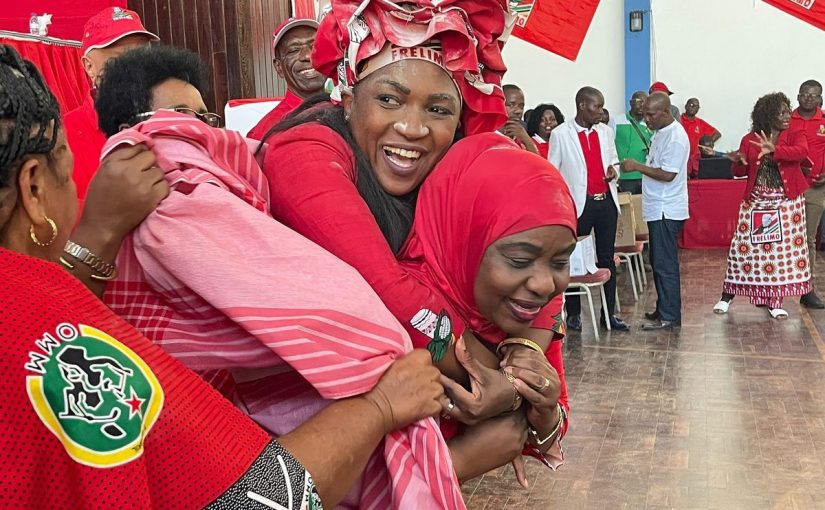
FILE - Stela Pinto Novo Zeca is Frelimo's mayoral candidate for Beira city. [Photo: OJM Sofala]
Mozambique’s ruling Frelimo Party on Saturday and Sunday chose its candidates for the assemblies that will be elected to the municipal assemblies in October.
Whoever is head of the list of candidates that wins most votes in the municipal elections will become the Mayor. Attention was thus concentrated on Frelimo’s mayoral candidates – and in several cases, they were elected unopposed, with 100 per cent of the vote, because other candidates, initially on the Frelimo short lists, had dropped out.
In Maputo city, the mayoral candidate is Razaque Manhique, who is currently the Frelimo First Party Secretary in the city. The outgoing mayor, Eneas Comiche, did not even make it onto the short list.
After his victory on Saturday, Manhique told reporters that he is confident of victory. He claimed that a Frelimo win in the municipal elections is “a national imperative”.
In the neighbouring city of Matola, the Frelimo conference elected unanimously Julio Parruque, currently the Maputo provincial governor, as the mayoral candidate. The outgoing mayor, Callisto Cossa, who has been in office for the last ten years, announced that he would run again – but changed his mind. He withdrew his name three days before the vote.
Matola has now overtaken Maputo city to become the largest municipality in the country.
In the new municipality of Marracuene town, 30 kilometres north of Maputo, as had been predicted, the dynamic district administrator, Shafee Sidat, becomes the mayoral candidate.
In Matola-Rio, a second new municipality in Maputo province, a local businessman, Abdul Gafar, heads the Frelimo list.
In the central city of Quelimane, a well-known local musician, Lourenco “Ney” Gini, heads the Frelimo list, with the difficult task of taking the city out of the hands of the main opposition party, Renamo.
The current mayor, Manuel de Araujo, has been in office since 2011, when he won a mayoral by-election, on the ticket of the second opposition party, the Mozambique Democratic Movement (MDM). He won again for the MDM in the nationwide municipal elections of 2013, but in 2018, he defected to Renamo. Ney Gani is a cousin of Araujo.
Gani won 100 per cent of the votes in the Frelimo conference, because two other candidates dropped out. “This is a victory for all the citizens of Quelimane”, he declared.
In the northern city of Pemba, Satar Abdulgani became the mayoral candidate, but faced opposition from two other candidates who did not drop out. According to the report on the independent television station, STV, Abdulgani won 33 out of a possible 66 votes.
In the western city of Tete, the election was also contested. The incumbent mayor, Cesar de Carvalho, won with 57 votes from the 67 Frelimo militants entitled to vote.
In Chimoio, capital of the central province of Manica, the incumbent mayor, Joao Ferreira, widely regarded as one of Frelimo’s most competent local politicians, defeated two others, to be confirmed as candidate for a second term.
By Sunday lunchtime, the inner-party elections were continuing in several major municipalities, including Mozambique’s third largest city, Nampula. But the result is not in doubt, since there is only one candidate, the current governor of Nampula province, Manuel Rodrigues.
Nampula is the jewel in the opposition’s crown, since Renamo won five out of the seven municipalities in the province, when elections were held in 2018. Rodrigues will contest the October election against the current Renamo mayor of Nampula city, Paulo Vahanle.
In Beira city, the current Secretary of State for Sofala province, Stella da Graça Magalhães Pinto Novo Zeca, was chosen as mayoral candidate. this Sunday
This is a list of Frelimo mayoral candidates brought by ‘Em Tempo Real MZ’ Facebook page on Saturday.
Maputo Cidade – Razaque Manhique
Matola – Júlio Parruque
Boane – Geraldina Utchavo Bonifácio
Matola-Rio – Abdul Issufo Gafur
Mocuba – Manuela de Jesus Opincai
Bilene – Mufundisse Chilengue
Massingir – Ageu Ngovene
Manjacaze – Francelina Nhantumbo
Ibo – Issa Tarmamade
Montepuez – Cecilio Chabane
Namaacha – Paulo Chitiva
Marromeu – Alberto Tongue
Dondo – Manuel Chaparica
Marracuene – Shafee Sidat
Milange – Felisberto Mvua
Chitima – Domingos Torcida
Caia – *Satar Colimão
Chibuto – Henriques Machava
Catandica – Pedro Mazonde
Macia – Ramal Mussagy
Chiure – Vicente Jorge
Gurue – José Fernando
Manica – Jilane Armando
Gondola – César Ngozo
Manhiça- Luís Munguambe
Lichinga – Luís Antônio
Balama – Mansur Cassamo
Quelimane -Lourenço Gani
Chimoio – João Ferreira
Sussundenga – Manuel Sumila
Guro – Mario Pita Doa
Mandimba – Wala Bernardo
Gorongosa – Sabete Elicha Morais
Marrupa – Rachid Buenausse
Alto-Molocue – Tomas Alberto
Pemba – Satar Abdulgani
Metangula – Paulo Chicomaussico
Quissico – Abilio José Paulo
Moatize – Carlos Portimão
Xai-Xai – Adamo Ossumane
Chokwe – Jose Vasco Moiane
Morrumbala – Jose Jonimeia Jonasse
Cuamba – Luis Raimundo
Mecanhelas – *Damiao Lissimba*
Maxixe – Issufo Francisco
Meanwhile, the National Elections Commission (CNE) has announced that 22 political parties, coalitions and citizens’ groups have applied to contest the municipal elections.
They include the three parliamentary parties (Frelimo, Renamo and the MDM, who have announced that they will contest all 65 municipalities) and 19 minor organisations which have no representation in parliament, or in any of the municipal and provincial assemblies. Most of the minor parties have no publications, or even websites, and the chances of them winning any seats in October must be regarded as minimal.
The CNE is now checking the documentation submitted by the parties to ensure that it does not violate the electoral legislation.
The parties that pass this hurdle must submit the nomination papers for their candidates between 20 July and 11 August.



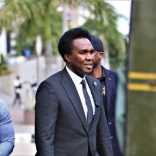
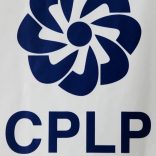
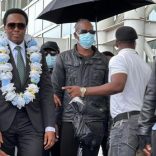
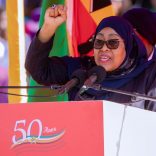





Leave a Reply
Be the First to Comment!
You must be logged in to post a comment.
You must be logged in to post a comment.